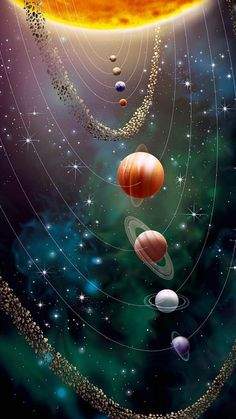++
I noticed with interest your recent blogpost of 5/1/23, “Did Padre Pio and Blessed Mother Indicate Extraterrestrial Life?” Thank you for calling attention to my book Extraterrestrial Intelligence and The Catholic Faith and the matter of St. Pio’s alleged comment about the subject.
+
Since you suggested that the word “supposedly” should be underlined, I thought you might be interested in knowing a little more about the source of that quote, information that I have discovered since the time when I wrote the book.
+
First, I would urge you, if you visit the subject again, to cite only the relevant pages in my book rather than my brief reply to a question that was published in the bulletin of the parish where I used to work. That reply necessarily left out details that appear in the book.
+
After considerable effort, and with the help of some providential connections of a friend in Italy with persons who were personally acquainted with the source, I have more to report now.
+
Don Nello Castello is a priest from Vicenza, Italy, who met Padre Pio in 1957 and frequently visited with him until the saint’s death in 1968. Castello compiled a book that featured a collection of statements made by St. Pio entitled Così Parlò Padre Pio (“So Spoke Padre Pio”; cited in my book’s footnote).
+
+
Msgr. Balducci, whom I cited in my book, was apparently quoting from this book, which at this time is not yet available in English. The author and translator who helped me track it down reviewed the original Italian of the passage (on page 217) and vouched for the accuracy of the translation.
+
Skeptics will probably insist that the book’s compiler could have fabricated the quote. I would reply that he is known as one of Padre’s Pio’s “spiritual sons”; the book was published only six years after the saint’s death; and the Capuchin affiliates in San Giovanni Rotondo who were involved in its publication would almost certainly have known if the man was making fraudulent claims or was of dubious integrity. So I am not inclined to question his integrity.
+
According to my contact, Fr. Castello is in fact still alive, but he is now in his nineties and not usually receiving visitors or corresponding with interviewers who are unfamiliar to him. I respect his wishes, so I did not attempt to contact him, though I certainly desired to do so.
+
As a side note, I should point out that the book which records this quote from the saint has the imprimatur of the auxiliary bishop of Vicenza. Admittedly, imprimaturs are not always a guarantee of theological orthodoxy, but it’s worth noting.
+
A related question then arises: Was Castello himself asking the question of St. Pio, or was he reporting that someone else had asked it? The context of the quote in the book suggests that he was reporting an exchange of the saint with a third party.
+
This conclusion may be borne out by a second source for the quote, La mia vita a vicino Padre Pio: Diario Intimo Spirituale (“My Life Near Padre Pio: An Intimate Spiritual Diary) by Cleonice Morcaldi (from the same publisher as Castello’s book, Casa Sollievo della Sofferenza in San Giovanni Rotondo). It was published much more recently, in 2020, and again, an English translation is not yet available.
+
This second book is the spiritual diary of the author, who was known by many as “Padre Pio’s favorite spiritual daughter”—again, someone whose integrity I am not inclined to question. The quote appears on page 85 of the book.
+
We must note that even though St. Pio’s words are the same in both passages, the words of the questions put to him vary slightly between these two books. So we seem to have two possibilities here.
+
First, these may in fact be accounts of the same dialogue, with either Morcaldi or Castello paraphrasing, or perhaps remembering imperfectly, the question as Morcaldi asked it or as Castello heard it reported.
+
Second, it may be that similar questions were asked by two individuals on different occasions, and Castello was reporting a conversation with someone other than Morcaldi. In this case, it would certainly be reasonable for St. Pio to use the same words in reply on both occasions.
+
I think it reasonable, then, to accept the testimony of these two individuals that St. Pio did in fact believe that intelligent extraterrestrial creatures exist and that at least some of them have not fallen the way our human race did.
+
In my mind, the burning question is this: Was the saint stating a conviction about the matter that represented conclusions based on his personal reasoning? Or was his conviction based on what he believed to be a private revelation from God? After all, this particular saint was known to have received numerous private revelations of hidden realities: future events; remote events and conversations; life experiences and unconfessed sins of penitents in the confessional.
+
Either way, I don’t quote St. Pio in the book in order to claim his statements as proof that extraterrestrial intelligence exists. My point, rather, is that (in his case and in many others that I cited) someone can believe in all that the Catholic Church teaches and professes to be true and also believe in ETI without contradiction.
+
The book presents a detailed and well-documented case for that position in the course of more than 400 pages and 550 footnotes. Admittedly, it’s a hefty read, but those with a serious interest in the subject will find it engaging and, I hope, persuasive.
+
Thanks again for your interest in the subject and the book. God bless you in all your labors for His people. In the Two Hearts, Paul Thigpen, Ph.D.


